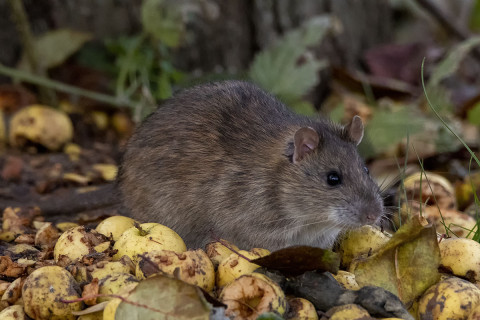The rapid advancement of genetic technologies has ushered in a new era of pest control, and the Tactical Genetic Control of Rats project in Aotearoa New Zealand is at the forefront of this change.

The Genomics Aotearoa project will leverage genetic technologies to develop novel rat eradication methods. This will help to advance New Zealand's ambitious Predator Free 2050 Limited goal, looking to a future where native ecosystems can thrive without the devastating impact of invasive pests.
The Genetic Control of Rats project is employing a comprehensive three-pronged approach through strategic partnerships with AgResearch, the University of Otago, Plant & Food Research and Victoria University of Wellington.
- AgResearch is working on the first aim of the project and has pioneered the development of a transgenic Norwegian rat suppression system within secure containment facilities. This endeavour involves the integration of a genetic construct into the Norwegian rat's genome, ultimately resulting in sex-specific mortality in offspring.
- The University of Otago and Plant & Food Research are using population data to understand the differences between the Norwegian rat and the ship rat, facilitating a deeper understanding of the gene flow dynamics of these species. Understanding rat population interactions on a genomic basis helps inform on the consequences of any potential future introduction of transgenic rats to existing populations.
- Te Herenga Waka-Victoria University of Wellington has taken the lead in the project's final objective, which entails the assessment of attitudes toward the single-sex offspring control approach. A dedicated focus on understanding how mātauranga Māori knowledge applies to predator control and the application of transgenic technologies will enable proactive identification and mitigation of concerns throughout the development process, ultimately increasing the likelihood of support for this technology once it has been developed.
Outcomes
- Establish proof-of-principle for a genetic system that reduces fertility in laboratory rats.
Team
- Bjorn Oback (AgResearch) – Co-lead researcher
- Goetz Laible (AgResearch)
- Susie Szakats (AgResearch)
- Ming Li (AgResearch)
- Bobby Smith (AgResearch)
- Catherine Collins (University of Otago) Co-lead researcher
- Maren Wellenreuther (Plant & Food Research) Co-lead researcher
- Brooke Whitelaw (University of Otago)
- Sara Belcher (Victoria University of Wellington) Co-lead researcher
- Ocean Mercier (Victoria University of Wellington) - Co-lead researcher
- Alan King-Hunt (Victoria University of Wellington)